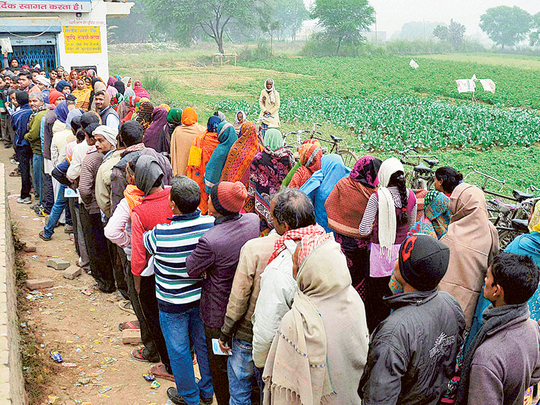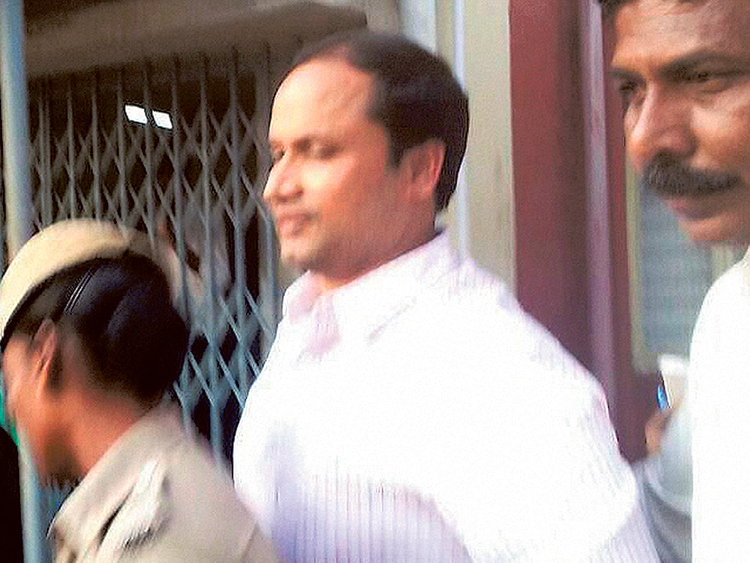
Hyderabad: Demonetisation, or the scrapping of big currency notes, has opened a Pandora’s box in India.
As cash woes and suffering continue unabated for the country’s 1.2 billion-odd people, the unprecedented move of declaring 86 per cent of country’s currency as invalid has also opened the floodgates of financial crimes across the country.
People either trying to save their black money or untaxed wealth — or those out to make a fast buck by turning the adversity into opportunity — have come up with ingenious ways and methods of achieving their goals.
Some are innovative, some ridiculous and some incredible. And many of them have ended up in failure, with perpetrators landing in the dock.
Strange incidents are being reported from different parts of the country as desperate attempts are made to save ill-gotten money.
Some people have willingly rented out their hitherto empty bank accounts to the rich to deposit their cash hoards, while some well-to-do people have used their clout and wealth to manipulate bankers and forcefully deposit their money into the accounts of poor and illiterate customers.
One such case involved P. Srinivasulu Naidu, a resident of Komatikunta village in Anantapur district.
The low-wage worker at a stone factory was shocked when he received an SMS, from the Andhra Bank branch at Tadipatri near his village, saying an amount of Rs18 million (Dh973,011) had been deposited into his savings account.
Naidu and his wife Sayamala, a farm labourer, tried frantically to reach the bank officials to find out how such a large amount of money had landed in their parched account.
“I have never seen such a big amount of money in my life. Leave alone crores [millions], I have not seen even thousands of rupees at one time”, he told reporters in his village.
The next day, bank officials contacted Srinivasulu Naidu to inquire about the money and its source.
“I was shocked by their questions. I am also dying to figure out the same,” he said.
Local police officials also questioned him, seeking to know whether somebody rich and powerful had used his account to deposit illicit cash in the banned denominations of Rs1,000 and Rs500.
The bank officials have also alerte Income Tax department officials to take up the matter for investigation.
Naidu has company.
In a similar incident, in the neighbouring Chittoor district of Andhra Pradesh, farm labourer Pathan Nazeer was also shocked to find that an amount of Rs12.6 million (Dh681,113) in his savings bank account. Again the bank involved was Andhra Bank.
Nazeer, a resident of Amilepalle village in Gurramokonda manual of Chittoor district had opened an account at Andhra Bank Gurramkonda branch only two months ago and had a meagre deposit of Rs192 in it. He came to know about the huge deposit in his account when he deposited Rs250 in the account and received a message on his phone showing the total amount in his account at Rs12,676,436.
In yet another incident in Anantapur city Rs10,000,000 was deposited in the bank account of a worker of a cinema hall.
Both Anantapur and Chittoor districts are part of the backward and dry Rayalaseema region of Andhra Pradesh.
The spate of financial crimes triggered by demonetisation has seen many government and bank officials landing behind the bars.
In one incident a police inspector, Y. Rajashekhar, and a Congress leader Tirumalesh Naidu, along with eight others, were arrested in Hyderabad after they robbed businessman Lakshman Agarwal of Rs7.8 million old currency, which he had brought to the city for exchange.
As the Indian government had also allowed post offices to accept the old currency deposits, some cunning officials have tried to exploit it to strike it rich.
The Central Bureau of Investigation arrested an Indian Postal Service Officer K. Sudheer Babu in Hyderabad, along with two others, for indulging in fraudulent practices to convert Rs29.6 million into new currency at four different post offices in Hyderabad.
Converting the old currency into new has also become a flourishing business as middlemen, with the help of unscrupulous bank officials, charge up to 30 per cent commission. Income Tax officials seized Rs6.6 million in a single day from two groups in the city.
The upheaval caused by the demonetisation also helped the authorities in seizing nearly Rs40 billion black money from the rich and the powerful all over the country, Rs7 billion in Telangana alone.
One such famous case was of J Sekhar Reddy, the former member of the prestigious Tirumala Tirupati Devsthanam Trust which manages the richest Hindu temple of south India.
Income tax authorities raided him and seized Rs1.65 billion and 127kg of gold among other valuables and properties.
He too had managed to exchange most of his money into new Rs2,000 denomination when the ordinary folks were scrambling for one or two pieces of the same note.
While an embarrassed Andhra Pradesh government has removed him form the TTDP board, in Tamil Nadu where Sekhar lived it has blown into a major scandal as even the state Chief Secretary P. Rama Mohan Rao’s residence and offices were raided by the Income Tax authorities.
From the same Tamil Nadu another report said that small pieces of old Rs1000 notes worth Rs10 million were found in heap of garbage as some body had torn them losing all hopes of exchanging them with new notes!













